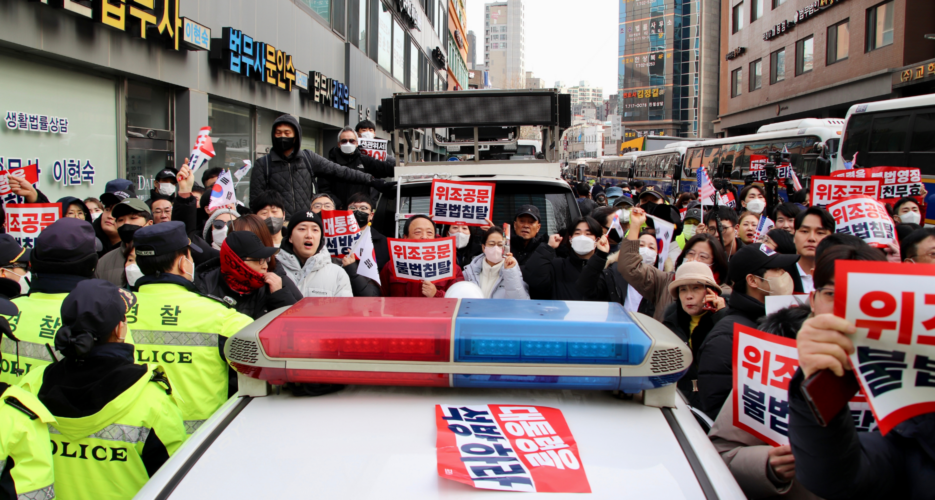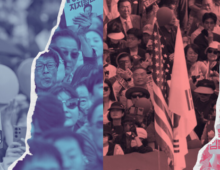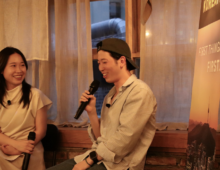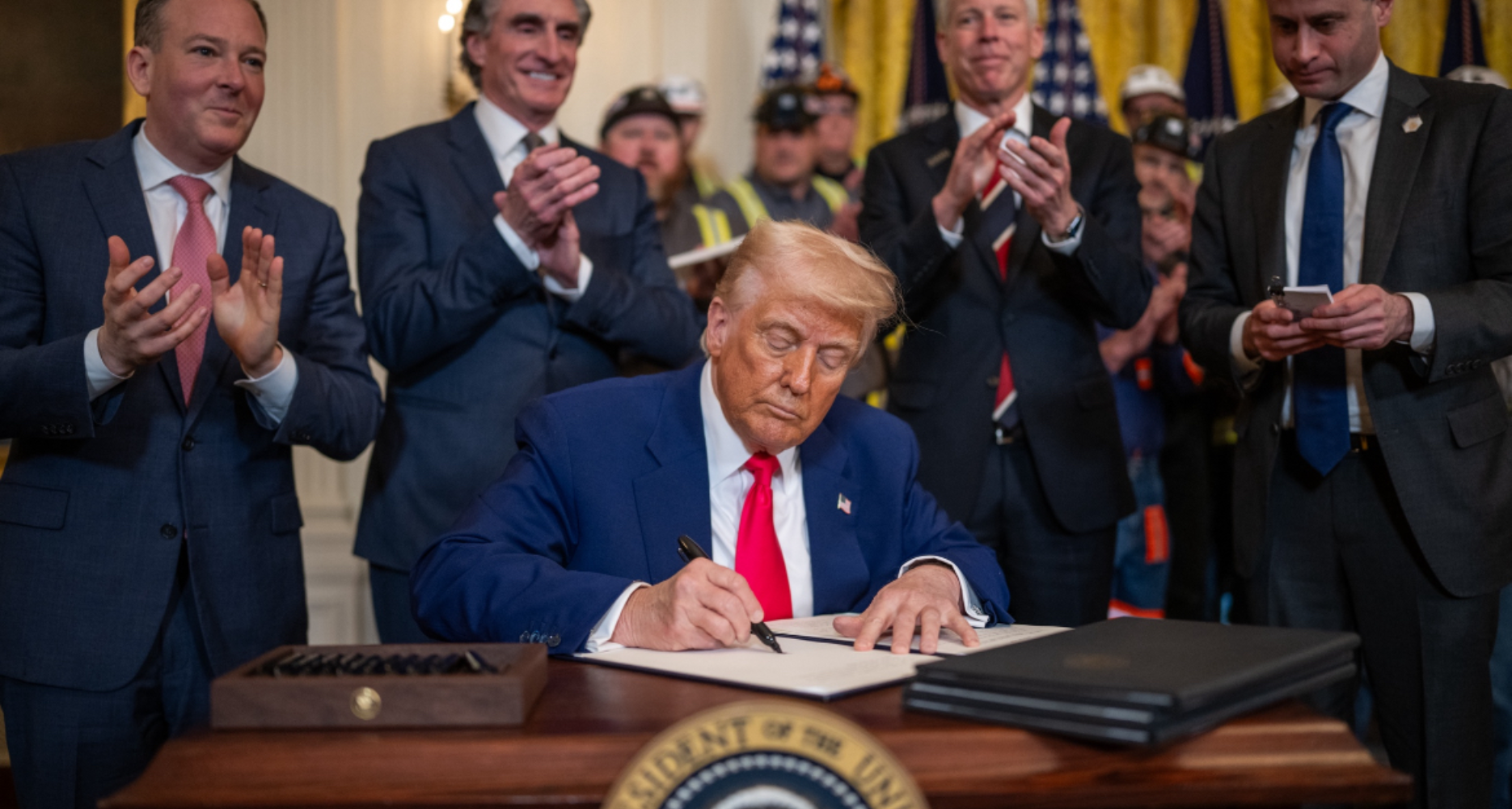Yoon’s supporters storm court amid escalating tensions, raising concerns over South Korea’s democratic stability
Violence broke out early Sunday at the Seoul Western District Court after the formal arrest of President Yoon Suk-yeol over his failed martial law attempt. An estimated 44,000 of Yoon’s supporters gathered outside the court, with 86 protesters detained for storming the building. Protesters broke windows, hurled objects at police and discharged fire extinguishers, leading to clashes. Separately, three individuals were arrested near the Constitutional Court, which is deliberating on whether to uphold Yoon’s impeachment.
Police and prosecutors have launched investigations into the incident. Those arrested face charges ranging from property damage to riot-related offenses, carrying potential sentences of up to 10 years in prison. Yoon, through his lawyer, expressed regret over the violence and called for peaceful protests. Acting President Choi Sang-mok condemned the attack and ordered a crackdown on unlawful acts while increasing security at judicial facilities.
WHY IT MATTERS
The assault on the court highlights rising political violence in South Korea, raising questions about the country’s democratic stability. Beyond the initial violence that was perpetrated by martial law troops who forced their way into the National Assembly on the night Yoon declared martial law, conservative activists also revived the White Skull Corps as an “Anti-communist Youth Brigade.” The group derived its name from an historic group of the same name that has been associated with human rights abuses.
While political violence has also occurred in other established democracies without damaging their reputations, South Korea’s position is more precarious. As a younger democracy in a volatile region, the country faces significant threats from North Korea and strategic competition with China and Japan. Perceived instability could embolden adversaries or weaken its geopolitical position, especially if its internal divisions are perceived as a vulnerability.
The unrest also risks undermining South Korea’s economic stability. Prolonged political divisions could deter foreign investment. The coming weeks will test whether South Korea can restore order and reaffirm its commitment to democratic norms.
Violence broke out early Sunday at the Seoul Western District Court after the formal arrest of President Yoon Suk-yeol over his failed martial law attempt. An estimated 44,000 of Yoon’s supporters gathered outside the court, with 86 protesters detained for storming the building. Protesters broke windows, hurled objects at police and discharged fire extinguishers, leading to clashes. Separately, three individuals were arrested near the Constitutional Court, which is deliberating on whether to uphold Yoon’s impeachment.
Police and prosecutors have launched investigations into the incident. Those arrested face charges ranging from property damage to riot-related offenses, carrying potential sentences of up to 10 years in prison. Yoon, through his lawyer, expressed regret over the violence and called for peaceful protests. Acting President Choi Sang-mok condemned the attack and ordered a crackdown on unlawful acts while increasing security at judicial facilities.
Get your
KoreaPro
subscription today!
Unlock article access by becoming a KOREA PRO member today!
Unlock your access
to all our features.
Standard Annual plan includes:
-
Receive full archive access, full suite of newsletter products
-
Month in Review via email and the KOREA PRO website
-
Exclusive invites and priority access to member events
-
One year of access to NK News and NK News podcast
There are three plans available:
Lite, Standard and
Premium.
Explore which would be
the best one for you.
Explore membership options












